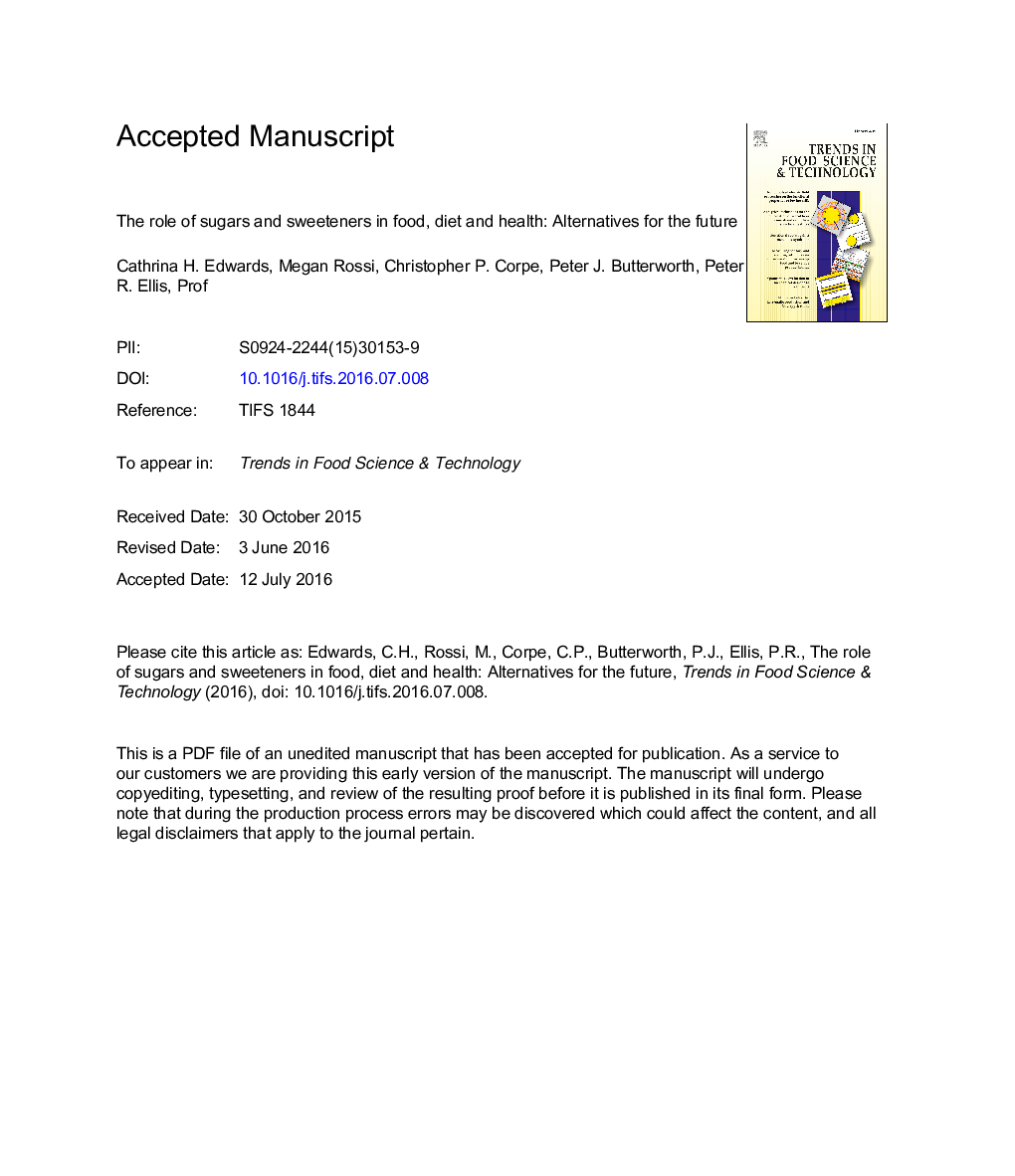| Article ID | Journal | Published Year | Pages | File Type |
|---|---|---|---|---|
| 8428780 | Trends in Food Science & Technology | 2016 | 34 Pages |
Abstract
Trends in future sweetener use will likely be influenced by increasing obesity prevalence and consumer demand; however, it is not yet clear which sweetener provides the best solution for this purpose. Given the main concern about sugars is their disproportionate contribution to dietary energy intake, non-nutritive sweeteners (e.g., aspartame, stevia), which provide intense sweetness but minimal caloric value, are increasing in popularity. However, their assumed role in facilitating body weight management is far from established, and many questions remain about their long term effects on energy metabolism and safety. Traditional sweeteners (e.g., maple syrup, honey, carob, and agave) have been safely consumed for generations, and although they contribute to energy intake, these sweeteners tend to have lower glycaemic potency than refined sugars. Moreover, traditional sweeteners contain a plethora of nutrients and bioactive compounds (e.g., polyphenolics) that may be of potential benefit to health.
Related Topics
Life Sciences
Agricultural and Biological Sciences
Food Science
Authors
Cathrina H. Edwards, Megan Rossi, Christopher P. Corpe, Peter J. Butterworth, Peter R. Ellis,
